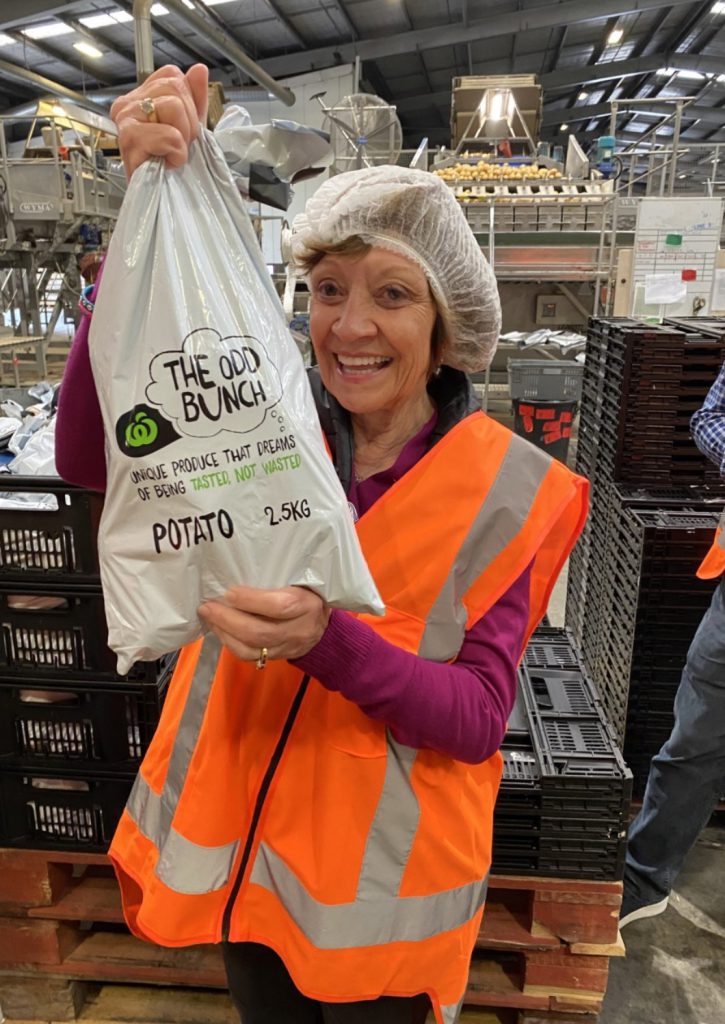By CDFA Secretary Karen Ross
Our travel today in New Zealand took us to the country’s vegetable bowl, the Pukekohe area near Auckland, which encompasses more than 10,000 acres and produces 26 percent of the nation’s vegetables by value. The leading commodities include carrots, leafy greens, broccoli, tomatoes, onions and potatoes.
Speaking of potatoes, one of our stops was at a company called AS Wilcox and Sons Limited, where they are helping to carry out an initiative to find homes for imperfect produce (see photo). The company packages “Odd Bunch” potatoes, which are offered at a cheaper price and helps to cut food waste while taking more produce from growers and also helping make healthy food more affordable. All of this helps with sustainability!
AS Wilcox and Sons features sustainability goals that target soil health, nitrogen leaching, and integrated crop production. During an overview presentation during our visit, an element that stood out to me was a slide that aligned the companies sustainability actions with the UN’s Sustainable Development Goals.
We also visited NZ Hothouse, a market leader in greenhouse produce focusing primarily on tomatoes and cucumbers, and we heard that labor, fertilizer and energy are the top challenges in the drive for farm sustainability. In regards to water, unlike California, 70 percent of the operation’s usage is from recycled rainwater, and future facilities are planned with 100 percent rainwater.
At NZ Hothouse we had the pleasure of connecting with FTEK, a designer and manufacturer for ag tech in the greenhouse vegetable sector. FTEK demonstrated automation that addresses labor challenges as well as climate resilience.
Visiting with these companies underscored our common climate challenges and provided a strong foundation for future collaboration.
Secretary Ross is in New Zealand this week for an exchange on climate change adaptation. Joining her in the delegation are representatives from agriculture and academia. This mission will serve as an educational program to help secure the long-term competitiveness of California specialty crops and enhance the competitiveness of the industry through more sustainable, diverse and resilient specialty crop systems.



